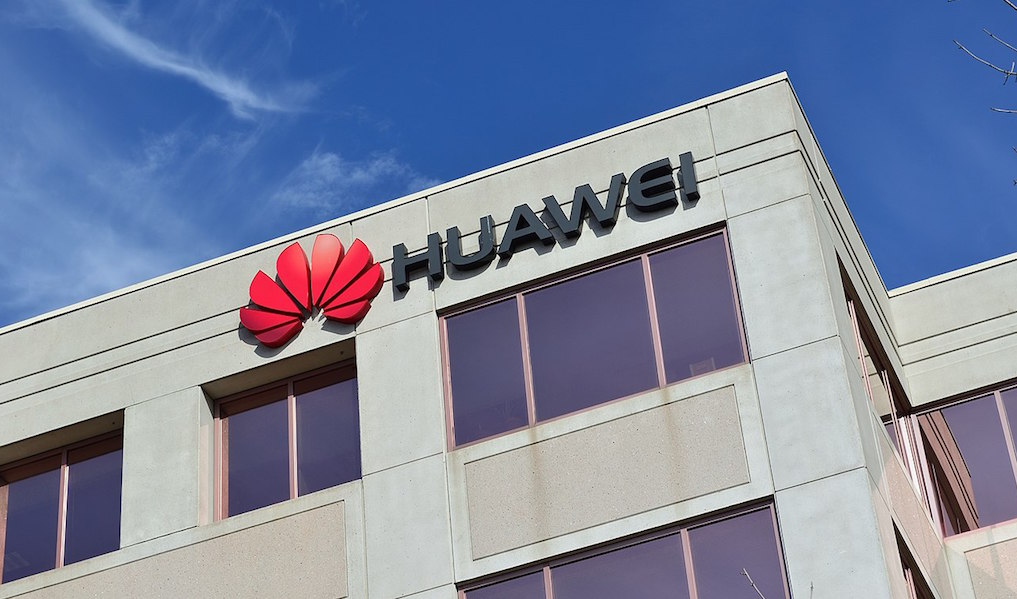U.S. authorities invoked the country’s extradition treaty with Canada and called upon the Trudeau government to arrest Meng Wanzhou — the top financial executive of the Chinese telecommunications giant Huawei — as she changed planes in Vancouver on December 1.
Meng Wanzhou was taken to the dreadful Alouette Correctional Centre for Women in Maple Ridge, where noted Trans Mountain expansion protester Jean Swanson (now a Vancouver city councillor) was recently held overnight along with other activists.
In court, Canadian Justice Department lawyers argued strenuously that bail should be refused to the Huawei Chief Financial Officer — who happens to be the daughter of Ren Zhengfei, founder of the company, which is a world industry leader in building G4 and G5 internet infrastructure and just recently passed Apple in world sales of smart phones.
However, against the wishes of the Canadian government, Meng Wanzhou was freed on bail set at $10 million. In February she will face a hearing before a Canadian judge in Vancouver (where she owns two homes) before being extradited to the U.S.
The Chinese government has erupted in protest and hauled in two Canadians on suspicion of espionage, in undisguised retaliation.
The Trudeau government is arguing that Canada is only applying the terms of the Canada-U.S. extradition treaty in arresting the Huawei executive, who was indicted in Brooklyn, N.Y. in August for bank fraud in connection with an alleged 2013 violation of U.S. sanctions against Iran. American experts agree that this is a normal application of the rule of law by Canada.
U.S authorities communicated their request to the Department of Global Affairs which turned over the extradition order to the Justice Department, where Minister Jody Wilson-Raybould greenlighted it. Prime Minister Trudeau made no secret of the fact that he had prior knowledge of the coming arrest.
The decision to respond positively to the U.S. — knowing full well that China would be enraged over the arrest — has serious political overtones. Few doubt the Trudeau government is playing the loyal ally because it places maintaining the long-standing Canada-U.S. relationship ahead of an expanded, improved relationship with China.
In addition to making nice with the U.S. president, without seemingly realizing it, the Trudeau government has volunteered to play a walk-on role to the U.S. in the economic cold war Washington is waging against China.
The American political class sees the rapid development of the Chinese economy as a threat to the U.S. hegemonic position in world trade and finance. The Trump administration added its own twist to establishment thinking by launching a trade war against China. Indeed, Trump made the Canadian claim that the arrest and jailing of Meng Wanzhou was not political seem ridiculous when he offered to rescind the extradition order as part of trade concessions he expects to extract in trade talks with China.
The Chinese determination to have a homegrown, high-tech, innovative advantage was proclaimed in its economic strategy: China 2025. Overseas the Chinese have launched a trillion-dollar Belts and Roads Initiative to build infrastructure with its trading partners.
Huawei is at the centre of Chinese efforts to modernize. In Canada it has signed research and development contracts with universities and is a sponsor of Hockey Night in Canada.
For the U.S., Huawei telecom infrastructure represents a potential security threat, making its allies vulnerable to cyber espionage. Western countries are being urged to boycott the Chinese company’s products. The U.K. is in the process of tearing out Huawei G4 equipment.
The U.S. National Security Agency (one of 17 U.S. intelligence agencies) has been conducting wiretapping and electronic interception of communications by U.S. allies and foes alike. German Chancellor Angela Merkel was furious to discover from a 2015 WikiLeaks report that her telephone and office conversations were continuously wiretapped by the U.S.
American intelligence and security professionals have obviously concluded that Huawei equipment gives the Chinese a capability for cyber espionage that must be undermined, and eliminated if possible.
An unconfirmed report suggests that extensive CIA operations in China were uncovered by China, and American “assets” captured and then executed, all because the Chinese were able to break American communications encryptions.
The U.S. established the Five Eyes espionage network in 1946. Formalized in 1955, it includes Canada, the U.K., Australia, and New Zealand as privileged recipients of intelligence reports the U.S. wants its allies to see.
Just as with the bad old days of the Cold War with the Soviet Union, the U.S. is using its Five Eyes network to disrupt China, its recently designated adversary.
This commercial, financial, and industrial Cold War mentality encourages escalation of conflict, increases in military spending, and military readiness in both the U.S. and China. The Trudeau government says it is prepared to follow the recommendations of the security and intelligence professionals.
In contrast to having the U.S. set the agenda for the Canadian government, an “internationalist” approach to world affairs would have Canada help design a cooperative international economic order, argue for a de-escalation of military spending, and work to make climate justice the world priority.
Duncan Cameron is president emeritus of rabble.ca and writes a weekly column on politics and current affairs.
Photo: Raysonho @ Open Grid Scheduler / Grid Engine via Wikimedia Commons
Help make rabble sustainable. Please consider supporting our work with a monthly donation. Support rabble.ca today for as little as $1 per month!




